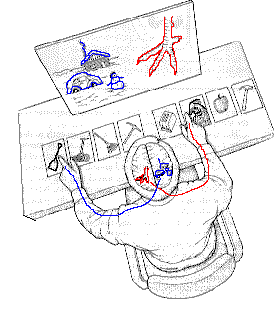Duendy,
Sorry but Christian de Quincey is offering nothing more than speculative fantasy. He also makes some very ignorant claims, such as –
There are no such recorded cases of anyone living normally with such a condition. Such cases result in extreme mental retardation and death shortly afterwards. He is quoting myth to further his imaginative book.
Let’s put this consciousness thing in perspective. The brain consists of some 200 billion neurons with some several trillion synaptic connections between them. Each neuron acts very much a like an independent microprocessor and all of them operate in parallel. The result is a massively parallel processing system that is some 20,000 times more powerful than the most powerful computer we have yet developed.
Now what these philosophers are saying is that this incredible device in our heads really doesn’t do anything and that our real mind comes from outer space or hyperspace or some other such nonsense.
There is also that awkward fact that any damage to the brain results in impairment to our ability to think, emote, and to be conscious, etc.
Sorry but Christian de Quincey is offering nothing more than speculative fantasy. He also makes some very ignorant claims, such as –
We also know of people who function normally with almost no brain at all. A condition called hydrancephaly. As much as 95% of the brain is not there.
There are no such recorded cases of anyone living normally with such a condition. Such cases result in extreme mental retardation and death shortly afterwards. He is quoting myth to further his imaginative book.
Let’s put this consciousness thing in perspective. The brain consists of some 200 billion neurons with some several trillion synaptic connections between them. Each neuron acts very much a like an independent microprocessor and all of them operate in parallel. The result is a massively parallel processing system that is some 20,000 times more powerful than the most powerful computer we have yet developed.
Now what these philosophers are saying is that this incredible device in our heads really doesn’t do anything and that our real mind comes from outer space or hyperspace or some other such nonsense.
There is also that awkward fact that any damage to the brain results in impairment to our ability to think, emote, and to be conscious, etc.

